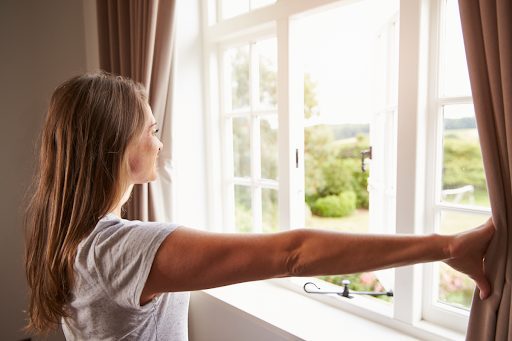As people spend more time indoors, concerns about poor indoor air quality continue to grow. While it’s easy to think that outdoor air quality is worse than the air inside your home, you are sadly mistaken.
Is air pollution worse indoors or outdoors? Believe it or not, indoor air pollutant levels can often be 3+ times higher than outdoors. Below, we’ll discuss why indoor air is more polluted than outdoor air and the steps you can take to improve your indoor environment’s air quality.
What Makes Indoor Air Worse Than Outdoor Air?
While you should be aware of outdoor sources of pollution, there are many airborne contaminants inside your home—several of which you might not be aware of.
The World Health Organization warns of the many dangers of poor indoor air quality. Some airborne pollutants inside your home can lead to health issues, including aggravated allergies, respiratory problems, and lung cancer.
Indoor Air Pollutants
Why is indoor air more polluted than outdoor air? From allergens you bring in on your shoes to products you use to clean your home, there are tons of airborne particles contaminating the air you and your family breathe.
Common indoor air pollutants include allergens such as pollen, dust, pet dander, and mold spores. If you cook with coal or other solid fuels, indoor air pollutants such as particulate matter, carbon dioxide, and nitrous oxide can be created. Plus, did you know everyday items can contribute to poor indoor air quality? Volatile organic compounds (VOCs) can be found in various products, including paints, cleaning supplies, and building materials.
Is air pollution worse indoors or outdoors? In most cases, the number of indoor air pollutants within your home can vary depending on your lifestyle and where you live.
What Causes Poor Indoor Air Quality?
Now that you know why indoor air is more polluted than outdoor air, you likely want to know what causes these pollutants to gather within your home. One common cause of poor indoor air quality is inadequate ventilation.
When buildings have poor ventilation, airborne contaminants can intensify and lead to what is known as “sick building syndrome.” Sick building syndrome is when occupants experience air quality-related health problems when inside the building.
Why is indoor air more polluted than outdoors? Another cause of poor indoor air quality can be neglected HVAC system maintenance. It’s crucial to change your HVAC system’s air filter regularly.
If you don’t, a dirty or clogged air filter won’t be able to trap harmful airborne contaminants. These contaminants will then enter your home, potentially causing adverse health effects.
How Do You Improve Indoor Air Quality?
Is air pollution worse indoors than outdoors? In most cases, the answer to this question is “yes.” Fortunately, however, there are steps you can take to improve your home’s indoor air quality.
First, try letting in fresh outdoor air. Opening the windows encourages the circulation of indoor and outdoor air, which can remove airborne contaminants from your home.
Another way to enhance your home’s air is by using indoor air quality products. Many products are available, such as air purifiers and air scrubbers, that can help lower indoor air pollution. The Right Choice supplies indoor air quality products, including Active-Pure Technology air scrubbers.
Turn To the Indoor Air Quality Professionals
While there are several reasons why indoor air is more polluted than outdoor air, you don’t have to suffer inside your home. The Right Choice is here for all of your home’s air quality needs. We offer ZAP! Electrostatic Air Filter Cleaner, air purifiers, and more to fit your needs. Call us right away to learn more about our air quality services!

